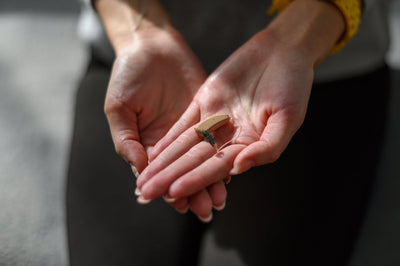Hearing Loss Prevention: How To Prevent Hearing Loss
Hearing loss makes it difficult to hear noises. This happens when the ear, the nerves that originate in the ears, or the hearing center of the brain malfunction.
Certain people are born deaf. Hearing loss, on the other hand, might develop gradually or later in life. Hearing loss can be inherited or caused by birth defects, infections, or ear-damaging medicines. The process of hearing loss cannot be stopped.
Noise-induced hearing loss, on the other hand, does not fall under this category. A sudden loud sound (such as an explosion) or prolonged exposure to loud sounds can cause the hair cells in the inner ear to die, reducing hearing. You may have hearing problems if you have to shout to be heard or if you can't hear the people around you.
Read on to discover more about hearing loss and how you can protect yourself from it.
Understanding Tinnitus
The ringing or buzzing in your ears has a name: Tinnitus. Tinnitus normally goes away within a day or two. It comes as a muffled sensation in the ears, and is an indication of ear hair cell loss. Sound waves are converted by hair cells into electrical impulses that the brain can process. Hair cells that have been damaged are unable to transmit sound impulses as effectively.
Tinnitus and hearing loss can occur if you regularly listen to loud music or sounds. That is why airport and construction workers must wear earplugs. To add, lawnmowers and other power tools, such as chainsaws, produce a lot of noise which could affect workers and the people that surround them.
Prolonged exposure to loud music, especially through headphones or earbuds, may be harmful. Tinnitus affects some musicians, which is a serious challenge for someone who relies on hearing to create music. As a result, a growing number of artists are opting for earplugs.
Tips to Protect Your Ears
- Use earplugs when necessary.
- Playing loud music or using loudspeakers should be avoided.
- Turn down the volume on your music and television. When wearing headphones or earbuds, you should be able to hear surrounding discussions.
- Take a rest after listening to music for more than an hour.
- When attending a concert or performing in a band, wear earplugs.
- Protect your hearing whether mowing the lawn, using power tools, or working around loud machinery.
- Get regular hearing tests.
Hearing Care for Pregnant Women, Infants, and Children
During pregnancy, precautions are similar to those stated above. It is also important to steer clear of sources of loud noise that could negatively impact the eardrums.
Children and babies should also be treated in the same way. Because they are still developing, it’s best to keep noise levels to a minimum.
Conclusion
Taking good care of your ears should be simple. In fact, the most efficient strategy to safeguard your hearing is to avoid loud activities. If you can't escape loud noises, protect your hearing. Hearing aids lower the amount of noise that enters your ear substantially. They aren't completely self-sufficient. Hearing protection that is not properly fitted will not protect your hearing.
Are you looking for affordable hearing devices? HearBloom offers hearing aids that fit your lifestyle and your needs. Browse our products today!
Related Articles



